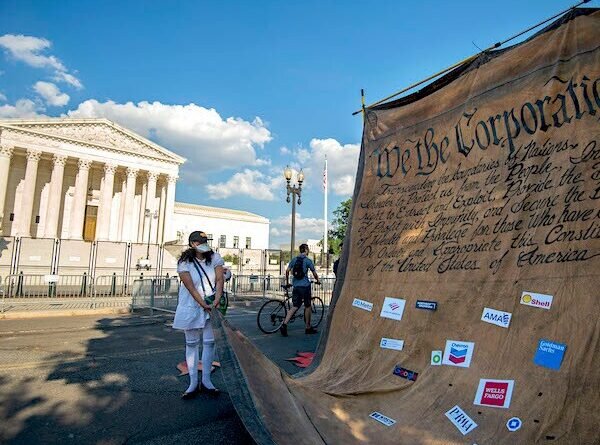Supreme Court Contemplates the Definition of ‘Income’ in Tax Dispute
The Supreme Court is set Tuesday to consider a challenge to the legality of a tax targeting owners of foreign corporations that could undermine efforts at imposing a wealth tax on the very rich in a case that has already sparked controversy over a call for Justice Samuel Alito to recuse.
The justices were due to hear arguments in an appeal by Charles and Kathleen Moore – a retired couple from Redmond, Washington couple – of a lower court’s decision rejecting their challenge to the tax on foreign company earnings, even though those profits had not been distributed.
The one-time “mandatory repatriation tax” (MRT), which applied to taxpayers owning at least 10% of certain foreign corporations, was part of a 2017 Republican-backed tax bill signed into law by former President Donald Trump.
At issue in the case is whether this levy on unrealized gains is allowed under the Constitution’s 16th Amendment, which enabled Congress to “collect taxes on incomes.” The Moores, backed by the Competitive Enterprise Institute and other conservative and business groups, contend “income” means only those gains that are realized through payment to the taxpayer, not a mere increase in the value of property.
A ruling favoring the Moores could strike at a wider array of tax code provisions including those related to other small business entities such as partnerships, limited liability companies and S-corporations, according to legal experts.
Such a ruling also could frustrate policies favored by some Democrats, including Sen. Elizabeth Warren, D-Mass., for a tax on the net worth – meaning all assets and not just income – of the super-rich.
The Moores are seeking a refund of nearly $14,729 in additional taxes that the 2017 law required them to pay as minority shareholders in a company in Bangalore, India, called KisanKraft that supplies equipment to farmers.
The case had made its way to the Supreme Court with relatively little public attention until it became enmeshed in the ongoing debate over the ethical conduct of the justices amid revelations about undisclosed luxury travel funded by wealthy benefactors.
Alito defended the court in articles in The Wall Street Journal’s opinion section. Alito, a member of the court’s 6-3 conservative majority, argued Congress lacks power to regulate the top U.S. judicial body, even as Democrats pursued ethics legislation that would apply to it.
Democrat senators urged Alito’s recusal from the case involving the Moores because one of their attorneys, David Rivkin Jr., co-authored The Wall Street Journal articles.
Rivkin’s access to Alito and efforts to help the justice “air his personal grievances” cast doubt on his ability to fairly judge the case, according to the senators. Alito refused to recuse, saying that Rivkin’s role in the articles was “as a journalist, not an advocate.”
Under pressure, the court last month unveiled a formal ethics code. The code has been criticized by Democrats and some legal scholars for lacking any enforcement mechanism.
The Moores sued the U.S. government in 2019 challenging the mandatory repatriation tax. The San Francisco-based 9th U.S. Circuit Court of Appeals threw out the case, noting that under Supreme Court precedent the “realization of income is not a constitutional requirement.”
© 2023 Thomson/Reuters. All rights reserved.



